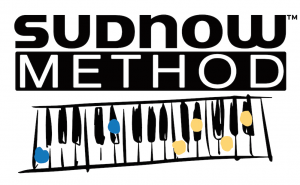“Atychiphobia” – I stumbled upon this word some years ago. It’s pretty fun to write and more fun to say. And no, it’s not the fear of ticks.
Here’s the Wikipedia definition, which I quote for a specific reason: “…the abnormal, unwarranted, and persistent fear of failure.” And please understand I’m using the word to make a rather prosaic point – not to minimize the challenges of people who deal with the true phobia.
As an aspiring amateur (a notion ripe for examination at a later time) there is one persistent, unwarranted and, in this context, abnormal question that’s always lurking as we think about or sit down to play the piano: Can I really do this? And more to the point, should I really try to?
But rather than try to convince you that you shouldn’t fear this particular failure (how would I really do that?) let’s just agree to assume that you have the necessary motor skills and intellectual capacity to play the piano. What else do you need? The only other ingredients are really just a plan and some time. The Sudnow Method gives you a plan to follow. Time seems to be the rub. Life gets in the way.
So here are a few tips to help make your piano practice fit your existing lifestyle – not force you to create a new one (which seldom works):
1. Distinguish long term goals from shorter term targets. In other words, your long term goal may be to have 15 songs well in hand but your short term target may to practice 3 days a week, 20 minutes a day, for two consecutive weeks.
2. The addendum to #1 above is to understand the real scope of your goals – “I’d like to play like a professional,” is probably a much bigger task than you realize. Get some feedback. You can always modify your goals as you progress.
3. Allow yourself time to ‘play around’ at the piano but make it a reward for ‘practicing’ – practice first, play after.
4. Engage your housemates in your plan and goals (or targets, if the goals seem too ambitious just keep them secret for now) by setting a specific time of day to practice and asking their help in encouraging you to stick to your schedule.
5. Cut yourself some slack. You’ll miss days. It’s not the end of the world but don’t allow a few missed days to become an excuse for not practicing today. You can even plan ‘days off’. Being away from the piano for a few days can be rejuvenating.
6. “Trust the force Luke”. It takes time. And much of that time will feel like you’re getting nowhere. Don’t get discouraged, you’re learning even when it doesn’t show up right away in your play. Patience can be your biggest virtue.
7. Pay attention. As Mark Levine says, “Speed comes from accuracy.”
And above all else, have fun! Really. If you’re not enjoying the journey, stop and figure out why. Fix it.
(If you’re on the mailing list you’ve seen this, if not please take a look at our little survey here.)
